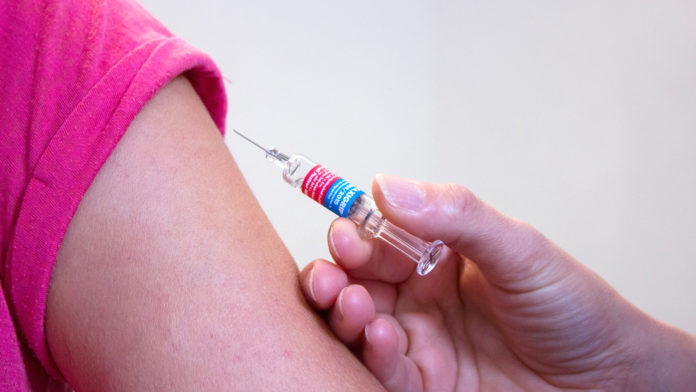Researchers at McMaster University believe that within a decade, they will be able to produce a single universal vaccine that will protect people from the flu for life.
Currently, it is necessary to get a new flu shot every year. The flu virus mutates and changes from year to year, which is why it is possible to catch the flu more than once.
The necessity of annual vaccination comes with many drawbacks. Even with the best intentions, there is bound to be lower and less consistent uptake when people need to remember to get the shot and fit it into their schedules each year. But also, to produce enough vaccine in time for flu season, experts need to predict circulating flu strains in advance, and sometimes the predictions are wrong. Although some protection is better than no protection, this mismatch is problematic, especially given the high cost of widespread annual vaccination.
However, certain parts of the virus are usually conserved. By targeting these areas, it may be possible to produce a vaccine that protects against all flu strains, even as they mutate.
Matthew Miller, assistant professor of biochemistry and biomedical sciences at McMaster University, along with collaborators at Icahn School of Medicine at Mount Sinai, New York and the University of Chicago, published research towards a universal flu vaccine in Proceedings of the National Academy of Science USA (PNAS).
Key among their findings is an approach to generate more of a particular kind of antibody against the flu. Antibodies are Y-shaped molecules that have two twin arms that the immune system generates at random, and then selects for the ones that best target foreign material, like viruses. The third arm is constant and can either block infection material from entering new cells or recruit other cells of the immune system, like white blood cells.
It turns out that exactly where the antibody binds on the viral surface matters. For one, only some may target non-mutating and universal parts of the flu virus. But also, some are better at recruiting an white blood cells, while others block their recruitment.
This is important because white blood cell recruitment is necessary for a universal vaccine to work. White blood cell recruitment allows the immune system to go beyond simply blocking the infection of new cells, allowing it to destroy already infected cells.
Miller’s research shows how flu vaccines can be modified to generate the right type of antibody in greater numbers.
With this new approach in hand, the next step is to move into clinical trials. With an estimated timeline to market of 5-10 years, it may soon be possible to get a single shot for lifelong protection from the flu.








































